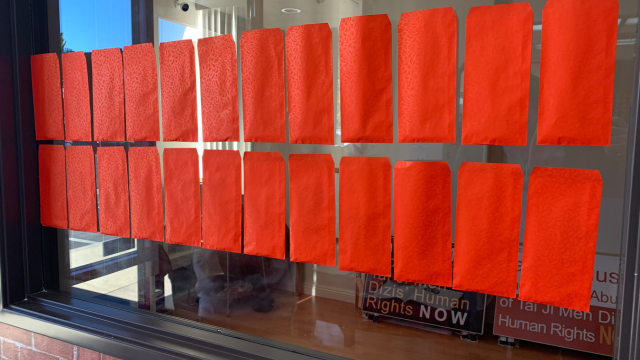The Supreme Court of a democratic country like Taiwan is the ultimate voice of justice. Yet, the National Taxation Bureau (NTB) ignored its ruling while pretending to act democratically.
by Marco Respinti*
*Conclusions of the webinar “The Tai Ji Men Case: Tragedy and Triumph,” co-organized by CESNUR and Human Rights Without Frontiers for the 18th anniversary of Taiwan’s 2007 Supreme Court decision in favor of Tai Ji Men, July 13, 2025.

July 13, 2007, marks a significant date in the long and troubling history of negligence, abuse, and injustice now referred to as the “Tai Ji Men case.”
On that day, the Supreme Court of the Republic of China (ROC) in Taiwan cleared Tai Ji Men of all criminal allegations related to false claims of fraud and tax evasion made by corrupt bureaucrats. The court concluded that the monetary gifts included by Tai Ji Men dizi (disciples) in the “red envelopes”— commonly used in Chinese (and other Asian) cultures to offer cash as gifts during special occasions and often decorated with symbols of good fortune or blessings—were not taxable income.
Previously, it had been falsely asserted that the contents of these “red envelopes” given to Tai Ji Men’s Shifu, or Grand Master, by his dizi, were tuition payments for services of a cram school. However, this was not true. There was no cram school. Tai Ji Men is a “menpai” for qigong, martial arts, and self-cultivation. Dizi receive teachings from the Grand Master but do not pay for them, although they express their gratitude through gifts.
This decision represented a complete victory. The 2007 Supreme Court ruling acquitted Tai Ji Men of all criminal charges, including fraud, and fully recognized that the contents of the “red envelopes” were expressions of gratitude from disciples to their master. Nevertheless, no full restitution for the unjustly accused Tai Ji Men has followed that historic decision.
Yes, on that day, justice prevailed. All allegations against Tai Ji Men were shown to be inconsistent and untrue. The long ordeal the movement had faced since December 1996—when the case began—culminating in the arrests of its leaders, seemed to have finally come to an end. It appeared to signal the dawn of a new era, in which Tai Ji Men could freely practice its beliefs, as no violation of law had ever been committed. Unfortunately, that brief moment of triumph was short-lived.
The National Taxation Bureau (NTB) continued to assert tax claims against the movement, extending a legal conflict that the Supreme Court had already resolved. Despite the definitive Supreme Court ruling from July 13, 2007, the NTB absurdly maintained a tax assessment for 1992, which in 2020 was enforced through actions to nationalize property owned by Tai Ji Men.
In doing so, the NTB blatantly violated both logic and law. The NTB accepted, in theory, that no tax was due because Tai Ji Men had committed no crime of tax evasion for all disputed years, but introduced an exception: one year was different from the others. Here, logic breaks down. Since nothing differentiates the disputed years regarding false claims of tax evasion, why should the definitive acquittal of Tai Ji Men from those accusations mean that one year, 1992, is treated differently? The Supreme Court ruling did not recognize any exceptional circumstances regarding that year. The NTB argued that for the year 1992, a decision had become final. This was, however, a technicality contradicting both justice and logic.

The Taiwanese Supreme Court ruling did not mention 1992; it treated that year the same as all others. Thus, the NTB effectively altered the Supreme Court’s ruling—or, in other words, disobeyed it. This represents a violation of the law following a violation of logic.
After the brief glimpse of triumph on July 13, 2007, a continuous tragedy unfolded: justice was granted by the highest legal authority in a democratic regime, yet another branch of that same government, which had no authority in legal matters, twisted and modified the ruling. This is unprecedented in a democratic nation, and as international scholars and commentators have repeatedly noted, it undermines the very integrity of democracy.
This situation prompts further reflection on the nature of a Supreme Court. In a democratic country, a Supreme Court serves as the court of last resort—acting as the final court of appeal and the ultimate interpreter of the law. No court exists beyond it. The pronouncements of a Supreme Court represent the final word on the rule of law in a democratic nation. Consequently, a Supreme Court’s decision binds all other courts, and no legal body can review or overturn its rulings.
In the Republic of China, the Supreme Court is one of the courts of last resort, handling both civil and criminal cases. It is the highest court in the country, and its role in ensuring the proper functioning of Taiwanese democracy is essential. Therefore, its rulings must be strictly observed throughout the nation.
However, since 2007, the NTB has done the opposite. It has ignored a fundamental Supreme Court ruling, effectively disregarding the ultimate guarantee of the rule of law and democracy in Taiwan.
As a result of this significant reversal, many people have suffered and continue to endure hardship. Tai Ji Men’s Shifu and his dizi are still the unfortunate victims of an unreasonable and undemocratic decision made by one branch of the Taiwanese government. However, the consequences extend beyond Tai Ji Men; all citizens of democratic Taiwan are affected. How can they live in peace and security if a fundamental principle of Taiwanese democracy is systematically violated by an institution within that same democracy?

Indeed, the story of Tai Ji Men is a complex mix of triumph and tragedy. Human experience teaches us that no genuine triumph in history is achieved without first enduring significant tragedy. Unfortunately, this fact offers little consolation. Tai Ji Men’s Shifu and his dizi pay a steep price for their innocence, while a few corrupt bureaucrats continue enjoying their well-paid positions.
Frankly, this situation cannot continue any longer. Every moment that passes without a definitive resolution to the Tai Ji Men case— which the Taiwanese government should now address through political action—is an unbearable shame.

Marco Respinti is an Italian professional journalist, member of the International Federation of Journalists (IFJ), author, translator, and lecturer. He has contributed and contributes to several journals and magazines both in print and online, both in Italy and abroad. Author of books and chapter in books, he has translated and/or edited works by, among others, Edmund Burke, Charles Dickens, T.S. Eliot, Russell Kirk, J.R.R. Tolkien, Régine Pernoud and Gustave Thibon. A Senior fellow at the Russell Kirk Center for Cultural Renewal (a non-partisan, non-profit U.S. educational organization based in Mecosta, Michigan), he is also a founding member as well as a member of the Advisory Council of the Center for European Renewal (a non-profit, non-partisan pan-European educational organization based in The Hague, The Netherlands). A member of the Advisory Council of the European Federation for Freedom of Belief, in December 2022, the Universal Peace Federation bestowed on him, among others, the title of Ambassador of Peace. From February 2018 to December 2022, he has been the Editor-in-Chief of International Family News. He serves as Director-in-Charge of the academic publication The Journal of CESNUR and Bitter Winter: A Magazine on Religious Liberty and Human Rights.



